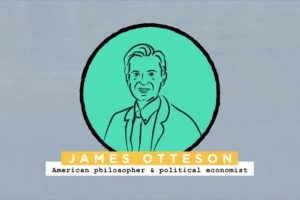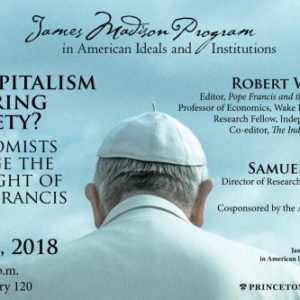Lesson 13 Lesson 13: Moral Norms
Presented by: Dr. Jay Richards
Busch School of Business and Economics at the Catholic University of America
Markets and Morality
In this lesson, students will study three thinkers idea on moral norms as diverse in time as Adam Smith, Wilhelm Röpke, and Paul Heyne. As a result, they will be able to articulate an important Enlightenment theory of morals that depends neither on natural law nor Divine Revelation. They will show how we have come to a point in history and culture that has been aptly called a “dictatorship of relativism.” And they will know the oft-neglected difference between collectivist critiques of markets and economic liberty and critiques of material consumerism, to which collectivist societies are as much as or more prone than commercial societies.
Key Concepts: (1) Invisible Hand, (2) Mutual Sympathy of Sentiments, (3) Mass Society, (4) Commercial Society,

Learn More
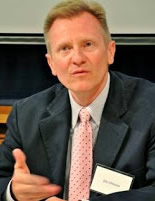 PDF
PDF
James R. Otteson, “Adam Smith on Virtue, Prosperity, and Justice,” In J.A. Baker & M.D. White, eds., Economics and the Virtues: Building a New Moral Foundation, New York and Oxford: Oxford University Press, 2016, pp. 72-93.
Read Now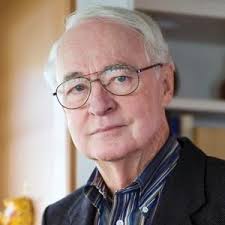 PDF
PDF
Wilhelm Röpke, “Boredom and the Mass Society,” The Humane Economy (Wilmington, DE, 2014), pp. 74-89.
Read Now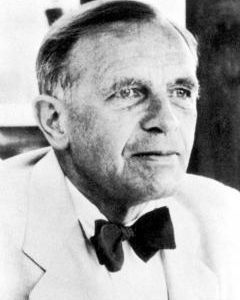 Link
Link
Paul Heyne, “Moral Misunderstanding and the Justification of Markets,” Federal Reserve Bank of Minneapolis, December 1, 1998.
Read Now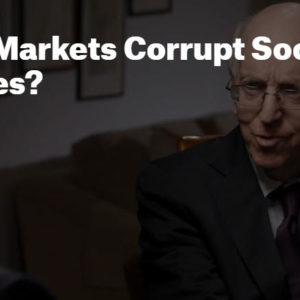 Video
Video
“Can Markets Corrupt Social Values?” with Richard Posner and Michael Sandel (from the University of Chicago and Harvard University & the Institute for New Economic Thinking)
Watch Now
